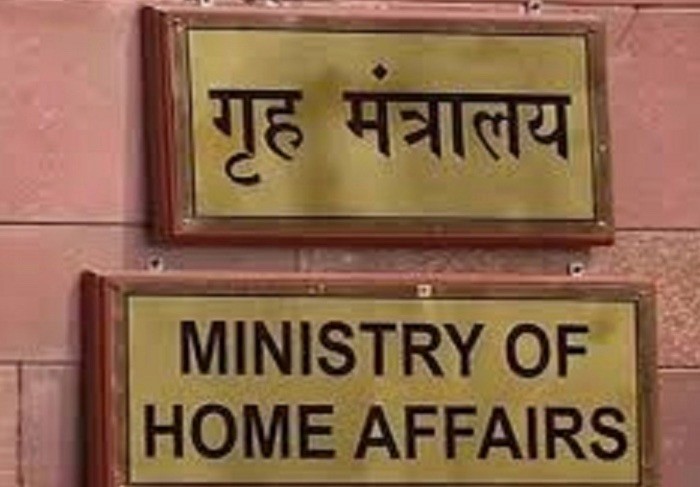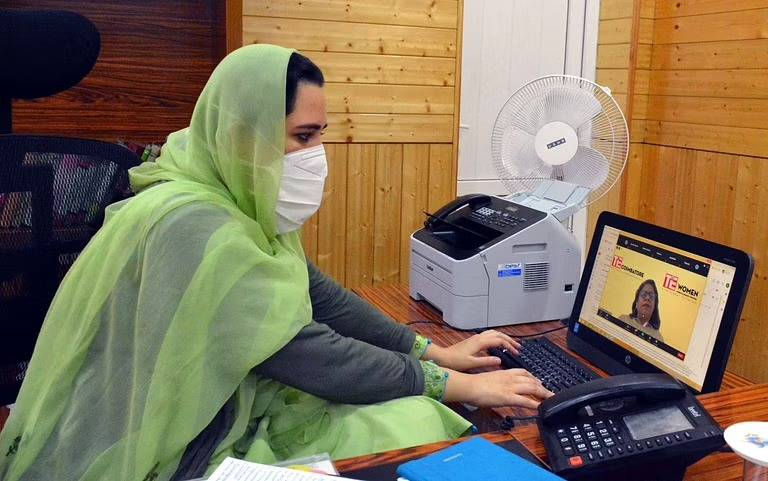The administration is just a phone call away or an e-mail away. The system which remained inaccessible for the past seven decades has become easily accessible to the common man now…reports Asian Lite News
Jammu and Kashmir has achieved yet another feat by securing the highest rank among Union Territories in the National e-governance Service Delivery Assessment (NeSDA).
In the e-governance service delivery systems, J&K has an overall compliance of nearly 90 per cent. J&K was assessed for the first time in NeSDA 2021 and scored highest among all the UTs for six sectors.The NeSDA report focuses on Central ministries on their effectiveness in delivering online services to the citizens. It helps the respective governments improve their delivery of citizen-centric services and shares best practices across the country for all states, UTs and Central ministries to emulate.
The report covers services across seven sectors — finance, labour and employment, education, local governance and utility services, social welfare, environment and tourism
The assessment covered 56 mandatory services for each state and UT and 27 services for the Central ministries.
The overall performance of ‘Naya J&K’ in e-governance has stunned everyone, leaving the critics speechless.
Scrapping Durbar Move saved Rs 200 cr
Prior to August 5, 2019 — when the Centre announced its decision to abrogate J&K’s special status and divided it into two Union Territories — the concept of e-governance was confined to papers only.
The former political regimes in Jammu and Kashmir during the 70 years of their rule couldn’t scrap the 150-year old Durbar Move practice.
Every year, the Civil Secretariat — the highest seat of power in J&K — used to function from Jammu for six months and then from Srinagar for the rest of the year. Soon after J&K’s transition into a Union Territory, both the civil secretariats were connected through online mode and records were digitised.
The practice of Durbar Move was scrapped which enabled the government to save around Rs 200 crore annually that was incurred in the carriage of physical files and other transportation charges etc. during the annual Durbar Move between the two capital cities of Jammu and Srinagar.
Implementation of Rapid Assessment System
The J&K government has successfully implemented the Rapid Assessment System (RAS) in the Union Territory. A total of 178 online services of 23 departments are being taken up for integration with the RAS which provides a trigger-based digital reach out to citizens seeking their feedback on the quality of services availed by them. Fifty-five of such services have already been up taken for seeking public feedback.
The J&K ranks first among the UTs and second among states in the RAS integration of services. The initiative has so far sent approximately 3.30 lakh communications to the citizens over the past five months, for evaluating their experience and quality of services availed through different government offices.
The domicile certificate service of the Revenue Department has received the maximum feedback/response with 78 per cent of users rating the quality-of-service delivery as ‘Good’.
Moreover, 92 per cent of the applicants for marriage certificate through the Revenue Department also voted their experience as ‘Good’.
Similarly, 82 per cent of the citizens who availed the ‘post-matric scholarship for Pahari speaking people’, 69 per cent respondents for IGNOAPS and 57 per cent for ISSS of Social Welfare Department rated the service as ‘Good’, whereas 76 per cent of the responses received for age certificate and fitness certificate, 67 per cent for physically challenged certificate services from the Health and Medical Education Department rated the services as ‘Satisfactory’.
The services for issuing birth and death certificates and customised livelihood scheme of Mission Youth also received positive citizen feedback.
Internet becomes effective governance tool
Till 2019, J&K was considered as a separatist state as stone-pelting, street protests and shutdowns were routine affairs. However, during the past two years, the Himalayan region has witnessed an unprecedented change. No one had even imagined that J&K would turn from a separatist state into a digital state.
The internet used by the terrorist handlers sitting across the Line of Control as a tool to preach hatred and indoctrinate youth has been turned into an effective instrument by the government to provide good governance to the people.
The past two years have proven beyond doubt that J&K was mismanaged as the former rulers didn’t make any attempt to utilise the means that were available with them.
Physical verification scrapped, grievance redressal revamped
The J&K administration recently scrapped the decades old practice of physical verification of the aspirants on their appointment to any position in the government. The initiative has made the employment verification process digital through a specially-designed web portal. The exercise that used to take many months can now be completed within one month in the new setup.
The online grievance redressal system was non-existent in erstwhile J&K. People had to personally visit the civil secretariats in Srinagar and Jammu with their day-to-day problems and issues. Ineffective grievance redressal system was one of the major reasons for disconnect between the government and the people.
However, after August 5, 2019, the government revamped the grievance redressal system in J&K. Phone helplines and online grievance redressal portals were set up for the common man to drop his complaint and check the status about the action taken either online or over phone.
The administration is just a phone call away or an e-mail away. The system which remained inaccessible for the past seven decades has become easily accessible to the common man now.
Change in status quo empowered common man
Change in J&K’s status quo has led to the introduction of technology in every sector. The J&K topping the UTs in the National e-governance Service Delivery Assessment reveals that J&K is on top of the Digital India map.
The Integrated Grievance Redress and Monitoring System (JK-IGRAMS) has created an interface with the public and focuses on governance issues in J&K. The government has shown that it cares for the people and it’s always ready to hear and help them.
The JK-IGRAMS provides minute by minute status updates of the grievances on the portal. District Collectors and Deputy Commissioners are the primary nodes for receiving, disposing and monitoring grievances.
The e-governance has helped bridge the gap between a common man and the helmsmen. A common man no longer has to knock on the doors of the offices to get his grievances redressed. He has become aware of his rights. He knows that his queries won’t go unanswered and his issues will get resolved promptly in digital Jammu and Kashmir.
ALSO READ-Is Modi’s Jammu speech a signal for a new beginning?

